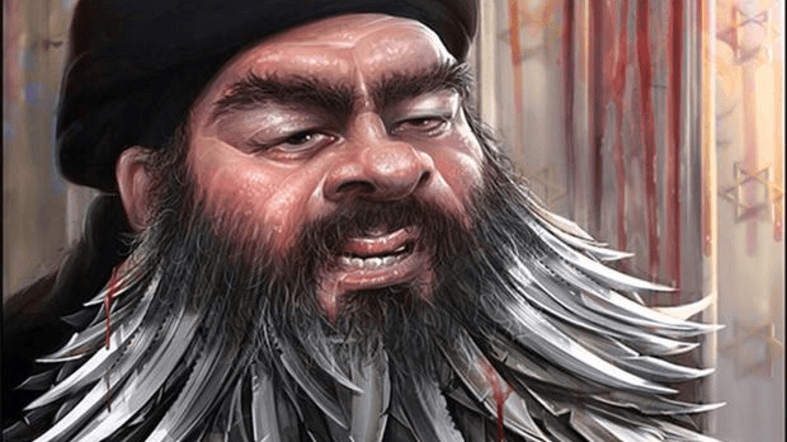
The House of Saud: Guardians of Glory and Shadows of Shame
Oct 2023
Introduction
The House of Saud has ruled Saudi Arabia for nearly a century, exerting significant political and economic influence in the Middle East and beyond. As custodians of Islam’s two holiest sites, Mecca and Medina, the Saud family has derived much of its authority from its role as the defender of the faith. This religious legitimacy has played a crucial role in maintaining the House of Saud’s rule over the kingdom.
However, the reign of the House of Saud has not been without contradictions and controversies. While they have positioned themselves as guardians of Islam, their rule has faced criticism for human rights abuses, restrictions on freedoms, and a lack of transparency. The kingdom’s strict interpretation of Sharia law has resulted in harsh punishments, including public executions and corporal sentences, which have drawn international condemnation.
Moreover, the House of Saud has been scrutinised for its involvement in regional conflicts and foreign policy decisions. The kingdom’s military interventions in Yemen and its strained relations with neighbouring Qatar have raised concerns about its approach to regional stability and human rights.
Despite these challenges, the House of Saud has maintained its grip on power through religious legitimacy, strategic alliances, and control over the country’s vast oil wealth. The next generation of princes faces the ongoing task of navigating these complexities, balancing modernization efforts with demands for transparency, accountability, and respect for human rights.
How did the House of Saud come to power?
In the early 20th century, change swept across the Arabian Peninsula as emerging regional powers challenged the status quo. Abd al-Aziz ibn Saud, an ambitious young chieftain and descendant of the Al Saud dynasty, saw an opportunity to revive his family’s faded glory. He launched a daring campaign to reclaim ancestral lands from his base in Riyadh. With deft diplomacy and military prowess, he forged alliances with nomadic tribes and co-opted rivals. The victory followed victory as Abd al-Aziz and his fanatical Ikhwan warriors conquered territory after territory in the name of Wahhabi Islam.
By 1926, Abd al-Aziz controlled Hejaz and the holy cities of Mecca and Medina. In 1932, after a final triumphant push into the eastern region of Al-Hasa, he unified the bulk of the Arabian peninsula under the Kingdom of Saudi Arabia. Assuming the title of king, Abd al-Aziz had fulfilled his lifelong ambition of restoring the House of Saud to preeminence. For him, it was the culmination of three decades of relentless warfare, skilful statecraft, and an unswerving belief in his family’s divine right to rule. The Bedouin warrior had transformed himself into an absolute monarch over a new nation-state. His descendants would inherit this patrimonial kingdom, bound by blood and faith to the House of Saud.
The House of Saud has relied on its close ties to Wahhabi clerics to provide religious legitimacy to its reign. Wahhabism is the kingdom’s official creed, an ultraconservative form of Sunni Islam.
How is power passed down within the royal family?
Succession in the House of Saud has always been a high-stakes affair, with rival princes jostling for power and prestige. As the founding generation of leaders aged, the question of who would inherit the throne became increasingly complex. Since the kingdom’s founding, succession has passed seamlessly from brother to brother based on seniority. But with over 15,000 princes by the 1990s, the pool of potential heirs had become unwieldy. Sons waited endlessly for their turn while the gerontocracy clung to power.
The Allegiance Council was established in 2006 to systematize succession from generation to generation to address this looming crisis. The council, comprising senior princes, would vote to select future kings and crown princes upon the monarch’s death. This new process was tested when King Abdullah passed in 2015. The transition to King Salman went smoothly, aided by the Allegiance Council’s vote confirming Crown Prince Mohammed bin Nayef. However, Mohammed bin Salman’s subsequent rapid rise signalled that palace intrigue still dominated Saudi politics. Through relentless manoeuvring, he outflanked rivals to become heir apparent by 2017, demonstrating that power remains concentrated in whichever prince can consolidate it.
The House of Saud: Dirty Deeds
The House of Saud, the ruling dynasty of Saudi Arabia, has long been associated with both luxury and controversy. Beneath the façade of wealth and modernization lies a history marked by allegations of corruption, human rights abuses, and a complex relationship with the global community.
One of the most contentious issues surrounding the House of Saud is its treatment of dissidents and political opponents. The kingdom has faced criticism for its crackdown on activists, journalists, and intellectuals who dare to challenge the regime. This suppression of free speech and dissent has drawn worldwide condemnation from human rights organizations.
Another stain on the House of Saud’s reputation is its involvement in the ongoing conflict in Yemen. Saudi Arabia’s military intervention in Yemen has led to a humanitarian catastrophe, with thousands of civilian casualties and a severe humanitarian crisis. The kingdom’s actions have raised questions about its commitment to regional stability and human rights.
Moreover, allegations of corruption have plagued the House of Saud for years. The royal family’s extravagant lifestyles and vast wealth have been contrasted with the economic struggles of ordinary Saudis. The lack of transparency in government finances and the royal family’s control over the country’s vast oil wealth have fueled suspicions of financial mismanagement and embezzlement.
Despite these controversies, the House of Saud remains a powerful and global force in the Middle East. Its strategic importance in the region and its vast oil reserves ensure that the kingdom’s actions continue to have far-reaching implications.
The House of Saud’s legacy is one of both grandeur and infamy. While the ruling dynasty has pursued modernization and economic development, it has also faced criticism and condemnation for its actions at home and abroad. The complex interplay of wealth, power, and controversy continues to define Saudi Arabia’s role in the world.
What reforms has the House of Saud instituted?
The House of Saud has indeed implemented various reforms to modernise the deeply conservative kingdom of Saudi Arabia. These reforms have sought to diversify the economy beyond its heavy reliance on oil and introduce social changes while maintaining authoritarian political control.
During the reign of King Faisal from 1964 to 1975, significant education and social reforms were introduced, particularly for women. Faisal recognized the importance of empowering women and granting them more significant opportunities. He implemented policies that expanded access to education for women and encouraged their participation in various sectors of society.
King Abdullah, who ruled from 2005 to 2015, continued the path of reform. He made notable strides in women’s rights by granting them the right to vote and run in municipal elections. Additionally, he curtailed the power of the religious police, known as the Mutaween, who were notorious for enforcing strict moral codes.
In recent years, Crown Prince Mohammed bin Salman has spearheaded the Vision 2030 agenda, a comprehensive plan to transform Saudi society and reduce the country’s dependence on petroleum. This ambitious vision encompasses various sectors, including economic diversification, social reforms, and cultural development. As part of these reforms, driving restrictions on women have been lifted, allowing them greater mobility and independence.
However, it is essential to note that alongside these progressive changes, there has also been a crackdown on dissidents and activists, raising concerns about human rights and freedom of expression in the kingdom.
The House of Saud’s reform efforts reflect a delicate balancing act between modernization and maintaining control in a deeply conservative society. These reforms have undoubtedly brought about significant changes, but the extent to which they will reshape Saudi Arabia’s social and political landscape remains to be seen.
How does the royal family wield power in Saudi society?
The House of Saud has maintained its grip on power through a combination of religion, coercion, and the distribution of oil wealth.
Royal patronage networks co-opt elites by granting privileges and government posts. Security forces clamp down on dissent. Pervasive social restrictions enforce public compliance by granting privileges and government posts. Security forces clamp down on dissent. Pervasive social restrictions enforce public compliance with Saudi Arabia’s Wahhabi-inspired moral code.
Oil revenues fund development projects and subsidize the lifestyles of ordinary Saudis. This social contract trading economic benefits for political quiescence has so far prevented Arab Spring-style unrest. However, falling oil prices have strained the system.
The royal family’s lavish privileges stand in contrast to demands for austerity. Discontent simmers among youth and women who feel left out of Mohammed bin Salman’s reform agenda.
How does Saudi foreign policy serve the royal family’s interests?
Saudi foreign policy serves the royal family’s interests by leveraging its oil wealth and status in the Muslim world to project power on the global stage. The kingdom’s foreign policy objectives are multifaceted, encompassing regional rivalries, religious influence, and regime security.
During the Cold War, Saudi Arabia aligned itself with anti-communist forces, providing significant aid to Mujahideen fighters during the Soviet occupation of Afghanistan. This support bolstered the kingdom’s position as a critical player in the global fight against communism. However, the propagation of Wahhabism, an ultraconservative form of Sunni Islam, has been criticized for contributing to the rise of Islamic extremism worldwide.
The House of Saud has also cultivated a strategic alliance with the United States, relying on American military protection and its role as a strategic partner to influence American policy in the Middle East. The kingdom has lobbied against the Iran nuclear deal and intervention in Syria, aligning its interests with the United States and seeking to counter the influence of its regional rival, Iran.
In recent years, Saudi Arabia’s foreign policy decisions have drawn scrutiny. Some have viewed the military interventions in Yemen and the blockade of Qatar as reckless adventurism driven by Crown Prince Mohammed bin Salman’s desire to consolidate power. These actions have sparked international criticism and raised questions about the kingdom’s approach to regional stability and human rights.
Saudi foreign policy serves the royal family’s interests by safeguarding their rule, countering regional rivals, and promoting Sunni Muslim causes and allies. However, the kingdom’s actions have also generated controversy and raised concerns about the impact of its policies on regional stability and global security.
What human rights issues has the kingdom faced?
The House of Saud has faced significant human rights issues that have drawn international criticism. The authoritarian rule of Saudi Arabia has often resulted in the violation of human rights, with the kingdom implementing harsh punishments based on its interpretation of Sharia law. These punishments include public beheadings, crucifixions, stonings, and corporal punishment, which human rights organizations have widely condemned.
Systemic discrimination against religious minorities and the LGBTQ+ community is another pressing concern. Religious minorities face restrictions and discrimination, while the LGBTQ+ community faces severe social and legal persecution. Women also face numerous restrictions on their rights and freedoms, including limitations on travel, dress, employment, and participation in public life.
Dissidents and activists challenging the regime often face arbitrary detention and imprisonment. Saudi Arabia has been known to use capital punishment against political opponents, and in 2019, a mass execution of Shiites accused of protesting took place, further highlighting the kingdom’s disregard for human rights.
The brutal murder of journalist Jamal Khashoggi in 2018 by Saudi agents sparked global condemnation. The CIA concluded that the crown prince likely ordered the killing, although Saudi officials deny these allegations. This incident shed light on the kingdom’s suppression of freedom of expression and the dangers faced by those who dare to criticize the regime.
While recent reforms have granted women more rights, such as lifting driving restrictions, the House of Saud maintains a firm grip on power, ruling Saudi Arabia with an iron fist. The next generation of princes faces mounting internal and external pressure to reconcile the need for modernization with demands for transparency, accountability, and respect for human rights.
Please note that the information is based on historical data and general knowledge. It is advisable to refer to reliable sources and news outlets for the most up-to-date and specific information.
Conclusion
The House of Saud’s journey through the annals of history is a complex tapestry woven with threads of ambition, power, and controversy. From its humble beginnings in the early 20th century to its current status as a global powerhouse, the Saud family’s rule has been marked by grand achievements and glaring contradictions.
Abd al-Aziz ibn Saud’s audacious quest to unify the Arabian Peninsula under his rule is a testament to his strategic brilliance and determination. His legacy of a united Saudi Arabia, bolstered by Wahhabi Islam’s influence, has endured for generations.
Succession within the royal family has been a high-stakes game characterized by intricate power struggles and alliances. The establishment of the Allegiance Council in 2006 aimed to bring order to this process, but the ascendance of Mohammed bin Salman illustrated that intrigue and manoeuvring still play a pivotal role in Saudi politics.
Reforms have been a recurring theme in the House of Saud’s history, with each ruler implementing changes to modernize the kingdom while maintaining tight control. Initiatives to empower women, diversify the economy, and curtail the power of religious police have been significant steps forward, albeit amid concerns about human rights.
Saudi foreign policy has been a tool to advance royal interests, from countering communism during the Cold War to cultivating alliances with Western powers. However, recent actions in Yemen and the blockade of Qatar have invited scrutiny and criticism.
Human rights have been a recurring thorn in the kingdom’s side, with allegations of severe punishments, discrimination, and the suppression of dissent drawing global attention and condemnation. The murder of Jamal Khashoggi cast a stark light on the kingdom’s approach to freedom of expression.
As Saudi Arabia navigates its future, the House of Saud faces a delicate balancing act. It must reconcile the need for modernization with calls for greater transparency, accountability, and respect for human rights. The following chapters of its history will undoubtedly be marked by the challenge of evolving while preserving the kingdom’s deeply rooted traditions and power structures.
Other related stories of Interest:

Maximizing Gains: Mastering Market Sentiment Indicators

How to Achieve Financial Goals: The Midas Touch for Your Financial Dreams

Sophisticated Strategies for US Dollar Index Investing: Elevate Your Forex Game

How much has the stock market dropped in 2023?

Visionary Views: How to Achieve Financial Freedom Before 40

A Major Problem with ESOPs is That Employees Can Lose Big

The Sophisticated Guide to Cryptocurrency Investing for Dummies PDF

Considering the Impact of Inflation, Why Is Investing Important for Long-Term Financial Stability?

What the NASDAQ Composite is Trading at in Today’s Market

What Is Contrarian Investing Unleashing Creative Perspectives

ETF Newsletter: Customized Options for Astute Investors

ETF Service Providers: In-House Options for the Tactical Investor

Fearlessly Trade Your Way to Financial Freedom

Unlocking Radiance: Hemp Benefits for Skin Illumination



